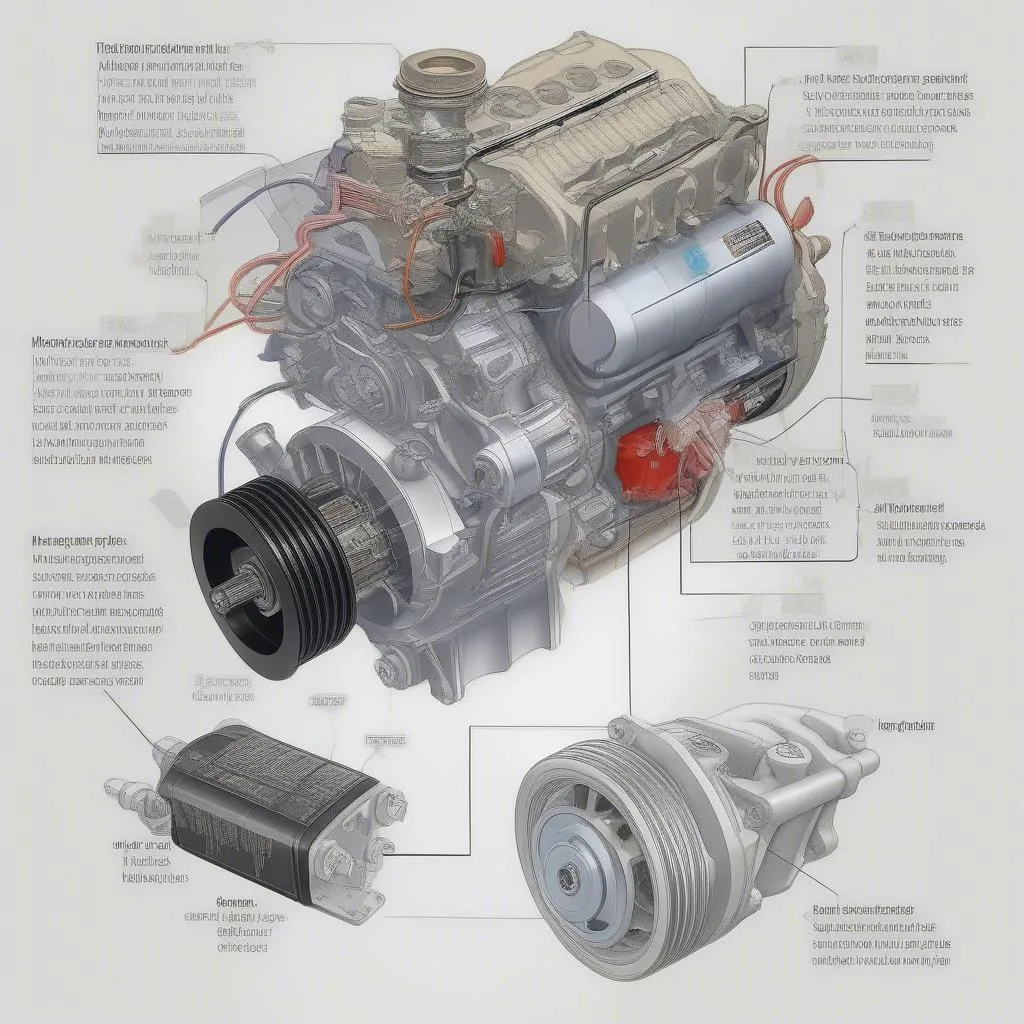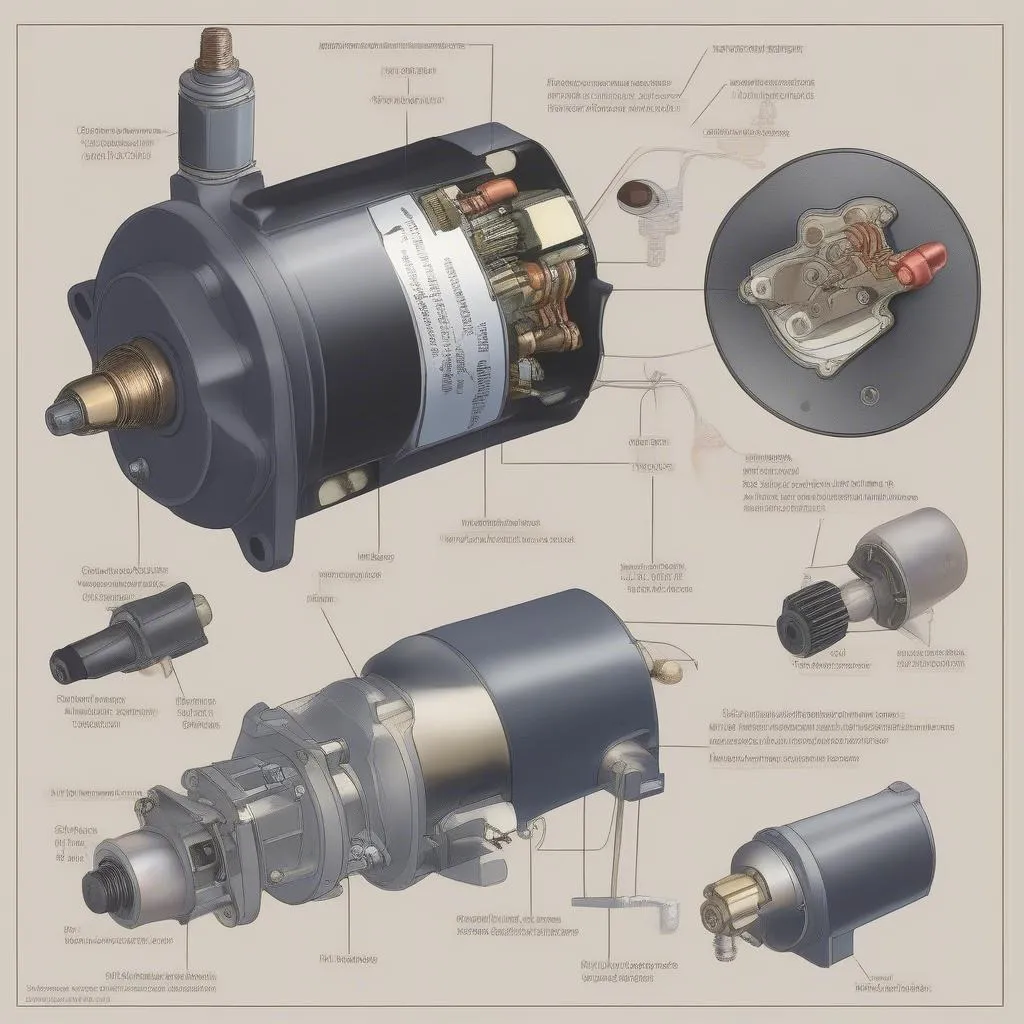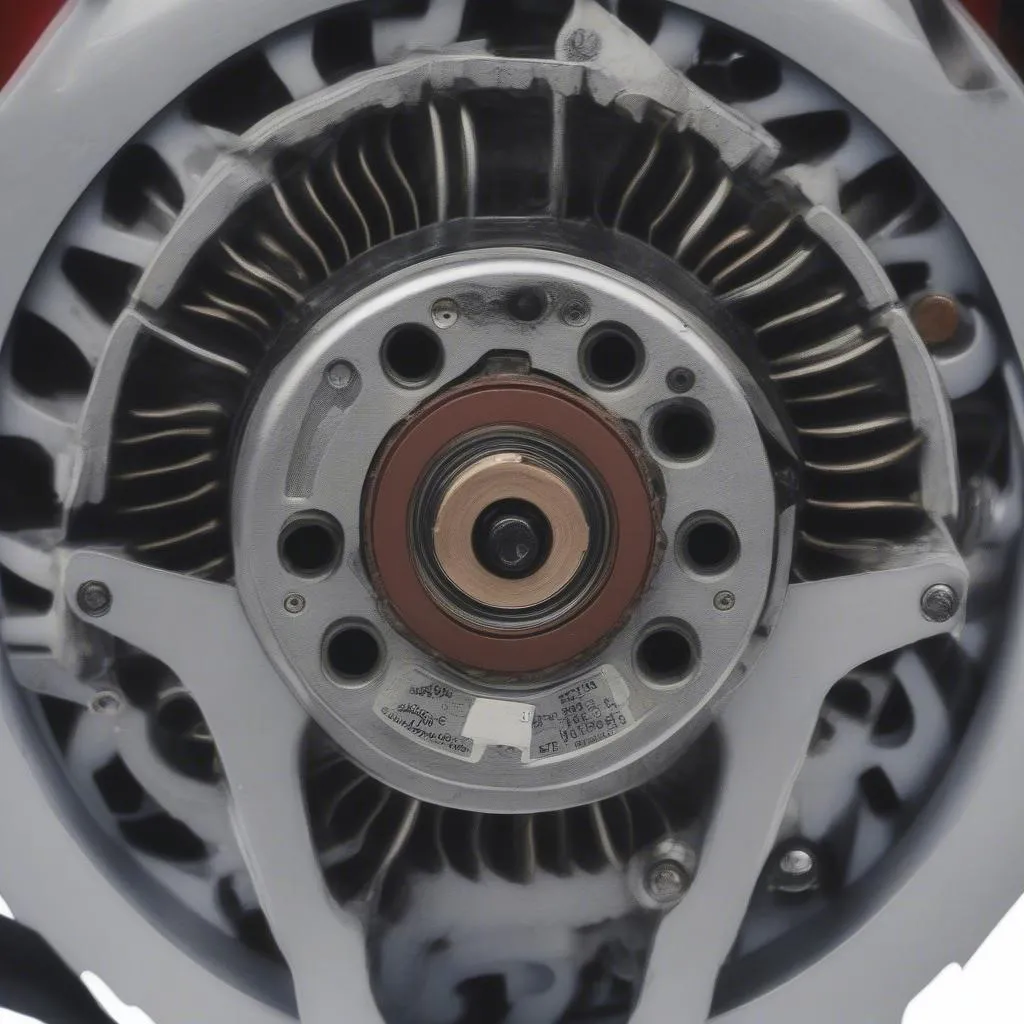Have you ever been driving down the road, enjoying your favorite playlist, and suddenly your car sputters to a stop? Or maybe you’ve tried to start your car in the morning only to hear a frustrating clicking sound? These are just a few scenarios that can happen when your car’s starter or alternator is not working properly. But how do you know which one is the culprit?
Understanding the Car Starter and Alternator
Both the starter and the alternator are vital components of your car’s electrical system, working together to keep your engine running smoothly. But they have distinct roles, making it important to understand their individual functions.
What is a Car Starter?
The car starter is a powerful electric motor that provides the initial burst of energy needed to turn the crankshaft and start the engine. Imagine it like a powerful muscle that gives your car a kickstart. The starter is typically engaged when you turn the key or push the start button.
What is a Car Alternator?
The alternator is a generator that generates electricity while the engine is running. It’s like a powerhouse that keeps your battery charged and supplies the electrical current to all of the car’s accessories, from headlights to power steering.
The Key Differences Between Car Starter and Alternator
While both the starter and alternator are important components of your car’s electrical system, they have distinct roles and functions.
| Feature | Car Starter | Car Alternator |
|---|---|---|
| Function | Starts the engine | Generates electricity |
| Activation | Engaged only when starting the engine | Operates continuously when the engine is running |
| Energy Source | Draws power from the battery | Generates electricity from the engine’s rotation |
| Output | Provides a high amount of torque for a short period | Provides a continuous supply of electricity |
| Failure Symptoms | Car won’t start, clicking sound when turning the key | Battery drains quickly, electrical components don’t work properly, warning lights come on |
Common Questions about Car Starter and Alternator
What happens if the car starter fails?
If your car starter fails, your car simply won’t start. You’ll hear a clicking noise when you turn the key, but the engine won’t turn over.
What happens if the car alternator fails?
If your car alternator fails, the battery will eventually drain, leaving you stranded. You might notice warning lights on your dashboard, your headlights dimming, or your electrical components not working properly.
Can I drive with a faulty starter?
No! If your starter is faulty, your car won’t start. You’ll need to have it repaired or replaced before you can drive again.
Can I drive with a faulty alternator?
You can drive for a short period of time with a faulty alternator, but you’ll need to get it repaired as soon as possible. A faulty alternator can drain your battery, and your car will eventually stop running.
How do I know if my car starter is bad?
Here are some signs that your car starter might be going bad:
- Clicking sound when you turn the key: This is a classic sign of a starter problem. The starter motor is trying to turn the engine, but it’s not getting enough power.
- Slow cranking: If the engine cranks slowly when you start the car, it could be a sign of a weak starter.
- Car won’t start at all: This is the most obvious sign of a bad starter.
How do I know if my car alternator is bad?
Here are some signs that your car alternator might be going bad:
- Dimming headlights: If your headlights dim when you turn on the air conditioner or other electrical components, it could be a sign of a weak alternator.
- Battery warning light: If your battery warning light comes on, it means your alternator is not charging the battery properly.
- Engine stalling: If your engine stalls after starting, it could be a sign that the alternator is not providing enough power to keep the engine running.
What to do if your car starter or alternator fails
If you suspect that your car starter or alternator is failing, it’s important to take it to a mechanic as soon as possible. They can diagnose the problem and recommend the best course of action.
Tips for maintaining your car’s electrical system
To prevent problems with your car starter and alternator, it’s important to keep your car’s electrical system in good condition. Here are a few tips:
- Maintain your battery: Make sure your battery is clean and has enough water. You should also have your battery tested regularly.
- Check your belts: Make sure your belts are in good condition and are not loose or cracked. A loose belt can prevent the alternator from charging the battery properly.
- Avoid overloading the electrical system: Don’t use too many electrical accessories at the same time, as this can put a strain on the alternator.
Conclusion
The starter and alternator are critical components of your car’s electrical system. Understanding their functions and the signs of failure can help you avoid costly repairs and keep your car running smoothly. If you have any questions about your car’s electrical system, don’t hesitate to contact a qualified mechanic for advice.
 Car Starter and Alternator Diagram
Car Starter and Alternator Diagram
 Car Starter Close-Up
Car Starter Close-Up
 Car Alternator Close-Up
Car Alternator Close-Up
Need help with your car’s electrical system? Contact Diag XCar for expert diagnosis and repair services. We have a team of certified technicians available 24/7 to help you get back on the road. Whatsapp: +84767531508